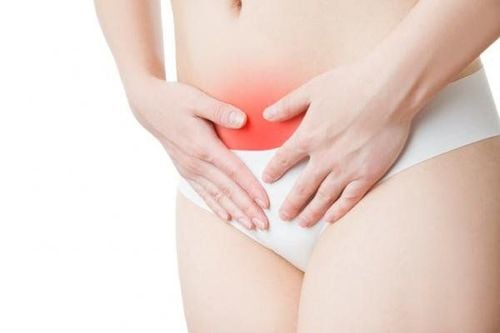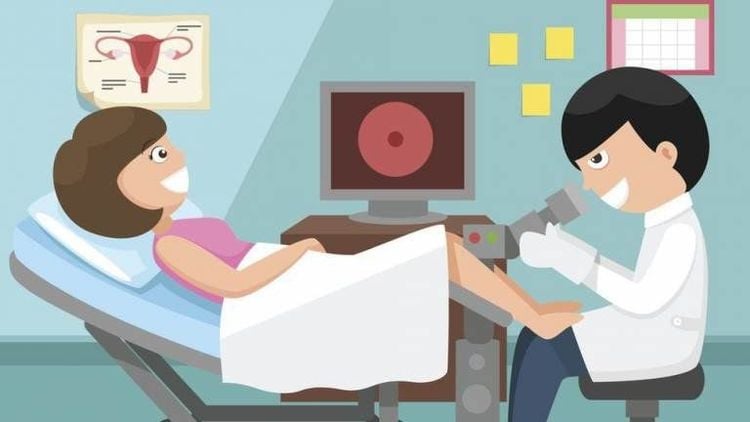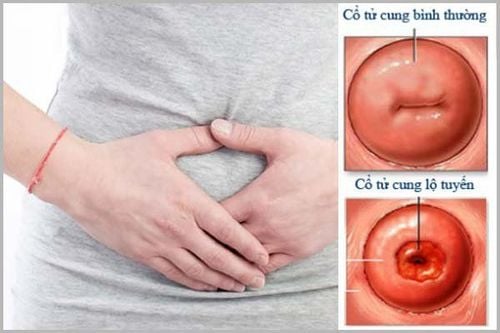Lower abdominal pain is a common issue experienced by some individuals after sexual intercourse. The discomfort may range from brief, sharp twinges to dull, lingering aches. Regardless of its intensity, this type of pain can impact intimacy and overall satisfaction, potentially signaling underlying medical conditions that need attention.
1. Causes of Lower Abdominal Pain After Intercourse in Women
Lower abdominal pain following intercourse can manifest as dull, cramping, or sharp pain. Causes include psychological factors like fear or anxiety, uterine contractions, or vigorous physical stimulation. In many cases, gynecological conditions are the primary cause. Here are some reasons for having lower abdominal pain after intercourse:
1.1 Incorrect Positions or Rough Intercourse
Rushing through intimacy, skipping foreplay, or engaging in vigorous movements can place sudden pressure on the abdominal muscles, uterine wall, rectum, or bladder. While discomfort may not be noticeable during intercourse, dull or sharp pain in the lower abdomen often develops afterward.
1.2 Prolonged Intercourse
Prolonged sexual activity can cause pelvic congestion, especially if the female partner has already climaxed while the male partner continues without ejaculating. Vigorous thrusting during this period may result in muscle tension and discomfort for both, particularly for the female partner.
Prolonged intercourse can easily cause pelvic congestion, which is the main reason women often experience lower abdominal pain if they have sex for too long.
1.3 Intercourse During Pregnancy
Lower abdominal pain after intercourse is common during the first and last trimesters of pregnancy due to uterine contractions. Improper positions or excessive force can increase the risk of preterm labor (labor before 37 weeks of pregnancy), which is why healthcare providers often advise against intercourse during these stages.

1.4 Pain from Underlying Medical Conditions
Several gynecological conditions can cause post-coital abdominal pain:
- Pelvic Inflammatory Disease (PID): Often caused by poor hygiene, unsafe sexual practices, miscarriages, abortions, or intrauterine devices. Symptoms include dull or sharp lower abdominal pain that may radiate to the groin or thighs, accompanied by abnormal green or yellow vaginal discharge, fever, and urinary urgency.
- Uterine Fibroids: These benign tumors are common among women aged 30–40. While small fibroids often don’t affect fertility or menstruation, larger ones may cause pelvic pain during or after intercourse, abnormal bleeding, and prolonged periods.
- Ovarian Cysts: Abnormal cysts in the ovaries often cause pelvic or abdominal pain, especially after sexual activity or heavy physical labor. Symptoms include irregular menstrual cycles, abnormal vaginal discharge, and hormonal imbalances.
- Endometriosis: This condition causes pain during or after intercourse, as well as pelvic discomfort during menstruation or bowel movements. Other symptoms include prolonged periods, back pain, and abdominal cramps.
2. Causes of Lower Abdominal Pain After Intercourse in Men
2.1 Epididymitis
Inflammation of the epididymis can cause pain during ejaculation or after intercourse. Symptoms include lower abdominal or pelvic pain, tenderness in one testicle, swollen or warm scrotum, and painful urination. In severe cases, discharge from the penis and fever may occur.
2.2 Testicular Cancer
This serious condition, common among men aged 15–35, is treatable when detected early. Symptoms include dull or aching pain in the lower abdomen or scrotum after intercourse, along with swelling, lumps, or a feeling of heaviness in the testicles.
2.3 Urinary Tract Infections (UTIs)
A UTI can cause burning sensations and pain in the lower abdomen or back after intercourse. Additional symptoms include frequent urination, painful urination, foul-smelling urine, and sometimes blood in the urine.

3. How to Prevent Lower Abdominal Pain After Intercourse
- Choose Comfortable Positions: Avoid positions that cause strain, and refrain from rough or hurried intimacy.
- Relax and Focus on Connection: Reduce tension, communicate openly, and focus on shared comfort and emotions.
- Maintain Proper Hygiene: Clean genital areas with water and appropriate hygiene products, especially before and after intercourse and during menstruation.
- Seek Medical Attention for Persistent Symptoms: If pain persists or is accompanied by unusual symptoms such as abnormal discharge, bleeding, or fever, consult a healthcare professional for diagnosis and treatment.

Consider gynecologic check-ups, such as the Basic Gynecological Screening Package, which includes:
- Specialized gynecological exams.
- Ultrasound for the uterus and ovaries via the vaginal route.
- Breast ultrasound.
- Tests including rapid syphilis screening, Chlamydia test, cervical cytology, vaginal microbiology analysis, HPV genotype PCR, and automated urinalysis.
To arrange an appointment, please call HOTLINE or make your reservation directly HERE. You may also download the MyVinmec app to schedule appointments faster and manage your reservations more conveniently.













